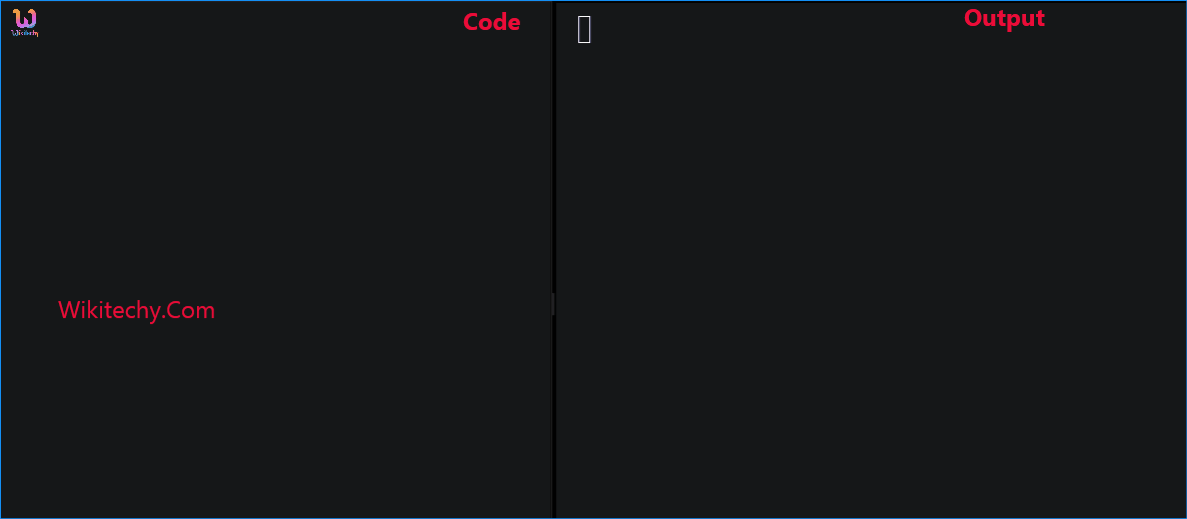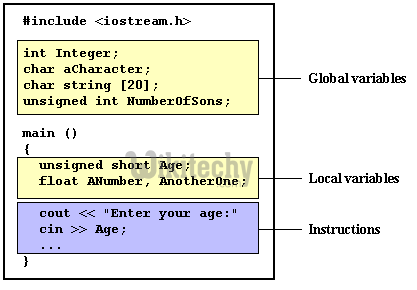Scope Variable in C++ - Learn C++ , C++ Tutorial , C++ programming

Learn c++ - c++ tutorial - scope variable in c++ - c++ examples - c++ programs
Scope:
- Scope applies to identifiers including variable names, functions names, class names.
- A variable’s scope determines where a variable is accessible.
- A variable’s duration determines where it is created and destroyed.
- The scope of an identifier is the region of a source program within which it represents a certain thing.
- Scope is the context that gives meaning to a name
Local Variable:
- A variable defined inside a function (defined inside function body between braces) is called a local variable or automatic variable.
- Its scope is only limited to the function where it is defined. In simple terms, local variable exists and can be accessed only inside a function.
- The life of a local variable ends (It is destroyed) when the function exits.

learn c++ tutorials - global variables in c++ Example
Example 1: Local variable
#include <iostream>
using namespace std;
void test();
int main()
{
// local variable to main()
int var = 5;
test();
// illegal: var1 not declared inside main()
var1 = 9;
}
void test()
{
// local variable to test()
int var1;
var1 = 6;
// illegal: var not declared inside test()
cout << var;
}
- The variable var cannot be used inside test() and var1 cannot be used inside main()function.
- Keyword auto was also used for defining local variables before as: auto int var;
- But, after C++11 auto has a different meaning and should not be used for defining local variables.
Variables defined inside nested blocks are destroyed as soon as the inner block ends:
int main() // outer block
{
int n(5); // n created and initialized here
{ // begin nested block
double d(4.0); // d created and initialized here
} // d goes out of scope and is destroyed here
// d cannot be used here because it was already destroyed!
return 0;
} // n goes out of scope and is destroyed hereVariables in one function cannot be seen from another function:
- Variables defined inside a block can only be seen within that block. Because each function has its own block
void someFunction()
{
int value(4); // value defined here
// value can be seen and used here
} // value goes out of scope and is destroyed here
int main()
{
// value can not be seen or used inside this function.
someFunction();
// value still can not be seen or used inside this function.
return 0;
}Shadowing:
- Shadowing is when a block scope variable with the same name as a file scope variable or an ``outer'' block scope hides or shadows those variables and will be the one to be referenced.
Shadowing example:
void func()
{
int abc = 5;
{
int abc = 9; // The scope of this abc is the block around it
cout << abc; // 9 is output
}
}
